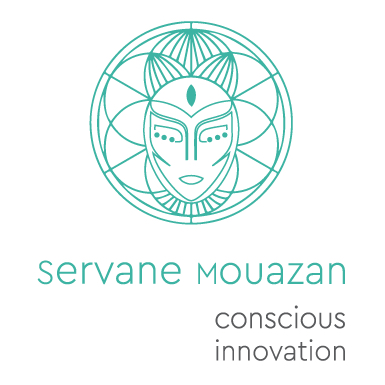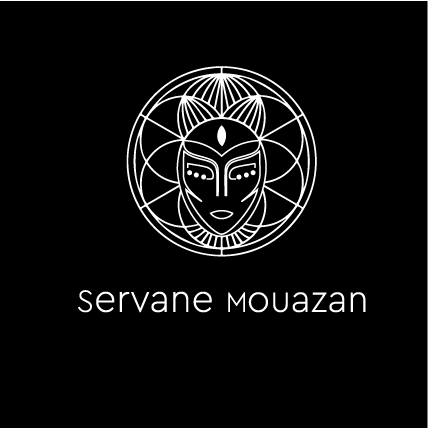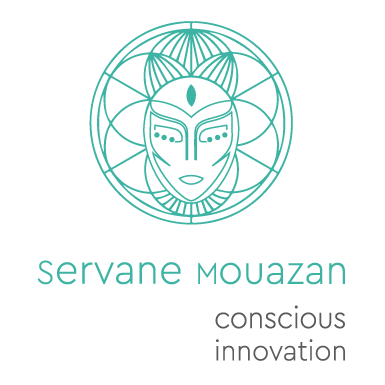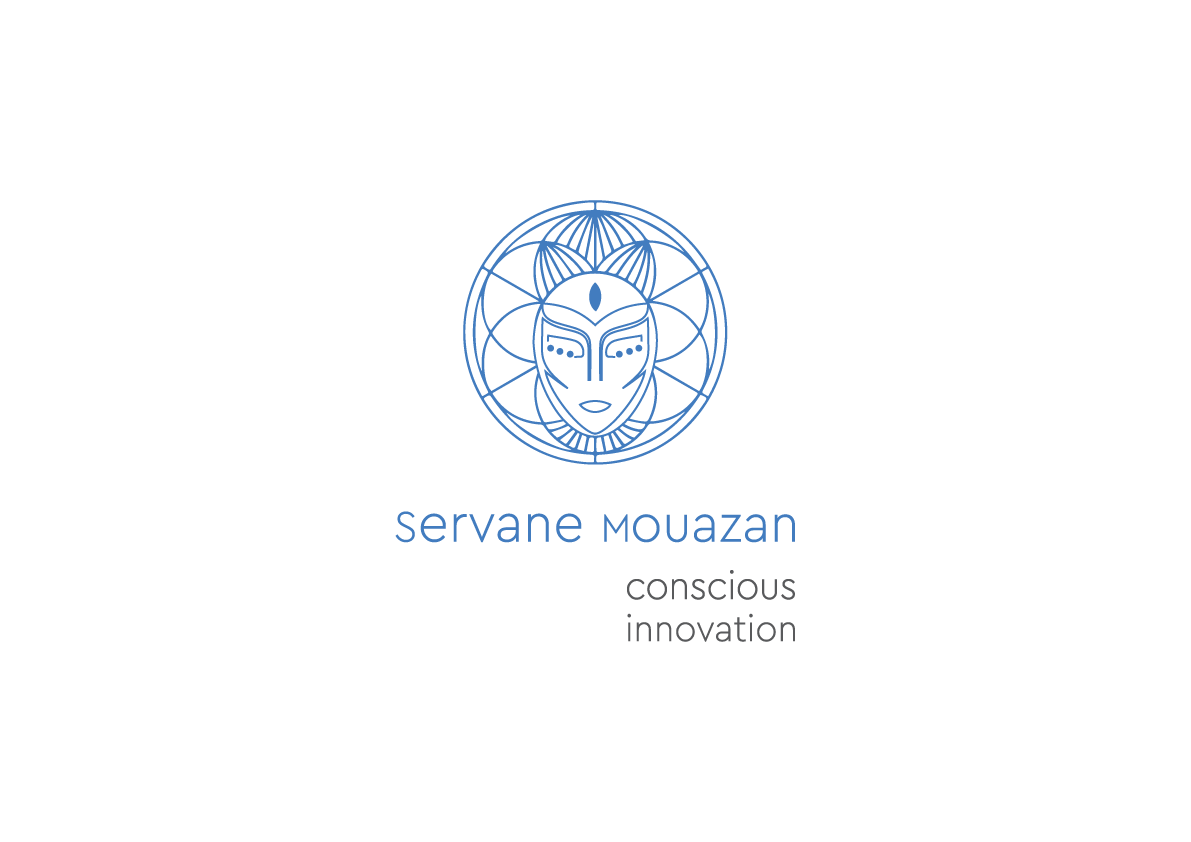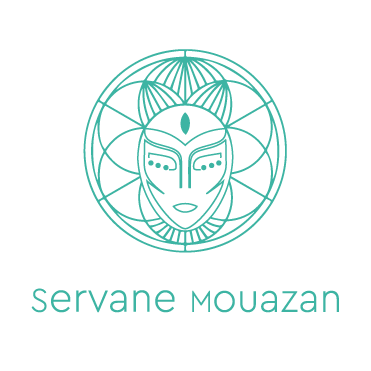Addressing Power Imbalance in Impact Finance with Aunnie Patton Power
Does Impact Finance Make You Uncomfortable?
In this episode of Be & Think in the House of Trust, I am listening to Aunnie Patton Power, an Academic, Advisor, Author, and Angel Investor (5 As!) who directs innovative financing to organizations that create a positive social and environmental impact.
She is a reformed M&A investment banker, who began her impact investing career in 2010 with Unitus Capital in Bangalore and has since worked with start-ups, intermediaries, funds, family offices, foundations, corporates, and governments across Africa, Asia, Europe, and North America.
In this episode, we explore Aunnie’s discomfort with traditional finance and how she shifted to impact investing with humility.
We revisit her thoughts on why we should scale positive impact outrageously, her take on the pervasive power imbalance, and what rethinking this dynamic could lead to.
I also loved the story of her student paper that led to a multi-million dollars Green Outcome Fund…
This episode is for you if you are thinking of changing your career to ignite social impact through finance.
It’s also for you If you want to boost impact through imagination and collaboration.
Highlights in this Episode:
(2.08) My discomfort with traditional finance
(5.06) The need for a power balance between impact builders and finance professionals
(8.47) From a student paper to a multi-million dollars Green Outcome Fund
(15:16) Scaling outrageously whilst allocating capital close to the ground
(25:00) Let’s rethink ownership and access to public markets.
Useful links
Find Aunnie Patton Power on Linkedin: linkedin.com/in/aunniepatton
Read Aunnie’s first book Adventure Finance www.adventure.finance
Build your impact finance career: www.impactfinancepro.com
Muhammad Yunus: Creating a World Without Poverty https://www.goodreads.com/book/show/247204.Creating_a_World_Without_Poverty
{{footer}}
Transcript
Servane Mouazan 0:03
Welcome to Be and Think in The House of Trust. My name is Servane Mouazan from conscious innovation and in this podcast, I am a thinking environment with people who ignite social and environmental impact through their investment funds, resources and commitment for a better world. Today I have the pleasure to welcome Aunnie Patton Power. She's an academic and advisor and author and angel investor with a focus on directing innovative financing to organisations that create positive social and environmental impact. Aunnie works with funders globally to design innovative financing instruments and deploy capital. She helps people in the ecosystem find impact finance careers, and it doesn't stop here. She's also a founding member of the dazzle angels a female angel investing group, her first book venture finance was published recently and she's working on a second one.
Hi, Aunnie, where are you in the world today?
Aunnie Patton Power 1:16
I'm at home in Cape Town. But thank you so much for the lovely intro it's lovely to be here.
Servane Mouazan 1:22
Welcome welcome so I've ever seen your your you were an academic and advisor and author and an angel investor the magic four A's and you've just started in merger and acquisitions, investment banking, what made the shift happen?
Aunnie Patton Power 1:37
So I like to call myself a reformed investment banker of you know, I, I think I came into the job market in the mid 2000s When there was just this, you know, kind of hearing this about investment banking being where, you know, the youngest and the brightest go and I had graduated with a liberal arts degree so you know, no finance background but found myself very much swept up in it and honestly loved finance. I still love finance it is you know, my every day, but it was pretty quick, a couple of years in that. I really felt quite a lot of discomfort with the types of deals that I was doing. In particular one that really stood out was a healthcare deal where in essence the the the corporate board had asked us to figure out how to get around the limit that they were supposed to spend on patients so they could distribute more capital essentially to themselves. And they were already paid you know exceptionally handsomely millions of dollars a year. And just I was just very uncomfortable with the fact that I realised I was quite good at finance, but I was using these skills to make the world potentially a worse place. Not a better one. And so, for me, there was this turning point I read a book by Muhammad Yunus called a world without poverty. And he talked about this idea of social businesses and financing these social businesses. And I was, you know, just really taken by that. So for me, it was that was the you know, this was back in the middle middle of the financial crisis, that I really said no, I don't I don't want to do I want to do finance, but I want to find a way to do finance in a way that makes the world a better place.
Servane Mouazan 3:25
So I'm hearing you wanted to get out of the discomfort and there was also a very uncomfortable crisis coming your way. So there were double layers. uncomfortable things happening. And so then you move into that new impact as what's new for you, that new ecosystem. And what do you learn straight away that you hadn't seen on Earth before and these first months of exploration in social finance?
Aunnie Patton Power 3:53
Yeah, so it was it was not just new for me it was new for the world. So this was about about a year after the the term impact investing had been coined. So I was, you know, trying to figure out how to get into this world. And when I did, I ended up working for a very, very cool organisation out of India, United capital. You know, it was interesting, the few months in one of the things that I learned pretty quickly, was that impact finance didn't actually look very different from traditional finance. And I was very excited about the possibility of it. But I remember sitting down there was a organisation I was working with it was signing a contract. I won't name them or their funder because they're both very well known. And I was looking through the term sheet and it was essentially a private equity 40 page term sheet which was completely not the right type of document for this small enterprise. But it also had literally nothing about impact in it, like, like there was like nothing in it. And so I think for me, what I realised quite early on was that I loved this world and this is what I wanted to do. I wanted to figure out how to finance social organisations, but I was again quite uncomfortable with the fact that all it felt like we were doing was taking traditional financial structures and adding this impact there. And so, for me, I mean, it's 13 years ago for me. The real drive of my career has been how do we build financial structures that embed impact that actually, you know, really reflect what we're trying to build as opposed to just seeing impact sometimes as a byproduct? And that's where, you know, really looking at how impact can be within the structures but also the processes, the incentives and the strategy, through which we allocate capital and
Servane Mouazan 5:45
term sheets to everything and all the documents to need to be adapted. Absolutely. Okay, so you come to that realisation or it's more of the same year for new clothes. And then you say, Well, I got to change that. How are you met by the people who are already in the system?
Aunnie Patton Power 6:06
Well, remember, I was I was I was a lowly analyst at this point. So there was no I don't think I was shaking up the world impacted the world yet rather. There. was a group of us that you know, quite now, most of which are very, you know, kind of senior in in the impact investing world, but I think there was a group of us that were all asking very similar questions around structures and you know, how to do this better. I mean, I think no one knew it's not that people came in and said oh, this is exactly. Oh, there were some people that did that. There were some finance professionals that came in and were like, oh, let's just this impact thing should be easy. Let's just quickly do this. But I think a lot of people did come in and were more humble and so asking questions, and so there were a group of us I definitely didn't know what we should do. I just was willing to kind of some ask some of these questions and so very much a group of us that, you know, both virtually and kind of physically, there was a set of really interesting innovators within India and ecosystem at that time. And I think we, you know, just started asking questions, I started writing, doing some work on you know, what would alternative structures look like, as I was also, you know, learning about how kind of the impact investing ecosystem was growing. So, I would say it was certainly a time of exploration. And one that led me to go to another degree to go to Oxford and do my MBA with the idea of really wanting to learn about how, like the intricacies of social finance and that's why I chose Oxford because it was the only course at that at that time. It was the only course in the world that had a social finance courses only programme that social finance course there were lots of organism or lots of programmes that had social enterprise courses. But there was that was the only one that I could find. Now, there are hundreds of MBA programmes that have social finance and impact investing courses. But, you know, again, this was 1211 12 years ago, so it just wasn't the case then. Right. And
Servane Mouazan 8:01
there's a lot of also opening MBAs that are well of courses that have got MBA in the title but are also accessible to four people around the world. So I'm hearing that there is that first discomfort then very quickly, the humility and the opportunity to ask questions and to learn more. It strikes me that you you're you've got that capacity to connect different worlds, you know, the founders, the founders, your usage on different boards, the academic world, and I know from your bio and from listening to you when you come into institutions. What do you wish and wasn't getting lost in translation all this time? Where people work on in fact, finance, social finance. Yeah. So
Aunnie Patton Power 8:47
you know, it's interesting, I was talking about this the other day, in a an interview that I was doing, I really wish individuals that have this significant impact experience, really felt validated and empowered enough to come to the table when designing structures because what I see whether it's whether it's designing structures or creating strategies, is I see a huge power imbalance often between it can be you know, for instance, I work with high net worth women that are essentially coming in to take more power over their wealth and often, almost 100% of the time because they want to create more impact, but they, for instance, been told by their advisors by their family members, oh, no, no, you don't understand this. Like this is this is real finance that you don't understand. Yeah, this impact. If you're entrepreneurs that, you know, comes to the table that say, I don't want traditional finance, you know, I want to you know, we want to grow this company to be cooperative that's owned by, you know, its users being told, that's not how, you know, you can access financing. I see you know, foundations and other types of nonprofits come in and say like, we want to be able to, you know, fund sustainably and responsibly, but not necessarily at market prices and being told that you're not going to be able to continue your endowment, because there's often this like power imbalance. And I one of the things I really try and do with all of my work is to really empower people that feel like they know nothing about finance, but they don't have to necessarily they can be really grounded in what they know about impact and then go to people and say, This is what I want to do from impact perspective. How do we make finance work for that, as opposed to how, what works for what we're trying to do? And I think that's where it takes humility on the sense of the finance seers. saying okay, I don't understand what you're trying to do from an impact perspective. So let me learn more about that. And then let me tell you about instead of what you can't do, let's find ways to be more creative about this. So I that's for me like the like, I think we'd solve tonne if there was an just more of a power balance between you know, those that are really trying to build significant impact and those that are structuring, financing kind of, you know, with the with the capital on the other
Servane Mouazan:side, and invitation to listen to each other and to open up doors for possibilities. That's what I'm
Aunnie Patton Power:absolutely working together to create things as opposed to this is how it works. Either you fall in line or you don't.
Servane Mouazan:So, we're talking about making financing instruments that are relevant here. And that are built collaboratively. What do you have story or something that you know, unexpected breakthrough around financing instrument that you later on? Say, Well, that was enough, right.
Aunnie Patton Power:So yeah, I mean, so why don't go back to that's actually quite quite a while ago now. We I was actually grading papers. It was over the Christmas holiday, and I was grading some papers. And there was this paper. Actually, because I have my students often create innovative financing instruments when I teach and at the student create this paper that essentially referenced pain funds to pollute to create impact. And I was sitting there and I was like, wow, this is actually a really good idea. I have never seen this done. I wonder if we could do this since I took it back to my team at that point in South America here. I said, Do you think we could do this, and this was in early January. And we started playing with this idea of playing with this idea. And we ended up reaching out to someone at the National Treasury here. And they were like, This is great. But you need to put it into a full blown proposal like that in the next like essentially 10 days and it was this like massive scramble, you know, right to like do all of the financial modelling completely flush it out. Like even though we didn't know, but it ended up so you know, and that went through multiple iterations and it got just shut down and then it got revitalised. And now it's about 100 million. Well, it's about and depending on that you can, there's different ways to because that's an interesting fun, but let's say it's close to a $25 million fund now that exists that's in South African rand terms. Is a couple billion rand which is significant here. That's called the Green outcomes fund. And the idea really is to pay for green social impact their green impact that's created by these funds and be able to encourage them to invest in more impactful investments and creating additional, essentially redirecting from landfills, creating additional access to green energy creating green jobs. And so that for me was it's the spark was a student paper that was like, what if we did this and then kind of all the way to you know, working with the national government in South Africa to fund it, and then so it was, that was a that was a fun one that it was a lot of work. And I have to say, I didn't do most of the work. But you know, these ideas can really come from anywhere.
Servane Mouazan:Just to two questions did the student get good marks and they do excellent marks for it.
Aunnie Patton Power:You know, we did tell them about it was the idea has changed significantly from when from when we did it, but yes, of course we told the students about how it was their their favourite So technically, the papers are all double blind graded, so I wasn't able to like go directly to the student, but I put it out last, but not the class and said, you know, in marking your papers, you know, this is something we're working on. So the student approached me and said, Oh, that was my idea. And so then I was able to tell them that's happened before. I've had that happen a few times. And because I'm supposed to always most of the academic institutions I work with, we do double blind grading, so we don't know who it is. So I have had to have multiple times over the years kind of go up to the class and say, Hey, I don't know where this was. But this was a really great idea and I'd like to take it forward. Can you come find me? And that's always quite fun. I love when I get to do that and they get very excited.
Servane Mouazan:Alright, so of course well, that's the exciting value of prompts to generate ideas and to start new journeys, right. So, so only, I mean, I can't imagine that you've got many, many stories of that kind and what what are you still restless? About
Aunnie Patton Power:one thing, surveying scale?
Servane Mouazan:Oh, yeah, that one comes back all the time. What are you going to do about
Aunnie Patton Power:it and this is really for me, it's something that is really defining the next pieces of work that I do and I find myself saying no to a lot right now because I am kind of, in essence, I've told myself that I'm not going to work on things that are not going to be significant dispense, you know, 12 years and I would say, a lot fewer of the things that I've done have scaled than I would like. So you know, it should be in the 10s of billions of dollars. That you know, structure, but it's just no. And so I think for me, it is it's not just about getting big, I think impact investing has gotten big and we were over a trillion dollars, but the level of impact within that trillion dollars I think is quite low. So figuring out ways to create space for very large amounts of capital, that are allocated in ways that are very close to the ground. So aggregating more, you know, community small business funding that is not necessarily it can be huge amounts of funding, but that really still has this deep impact and this connection to you know, individuals that are that are actually building impacts and is responsive to that. So some of the things I'm really excited about right now that I think you know, are part of this is rethinking things like ownership looking at employee ownership and purpose trusts, you know, different types of shared ownership. So, you know, why can't refund hundreds of 1000s Millions of businesses that are actually owned for the people that work in them. And you know, then you know, creating potentially these, you know, millions of V corpse employee owned companies that don't necessarily have to be doing something big shiny, and, you know, the next Facebook but you know, providing essential services and, you know, well made goods to individuals and providing dignified lives and doing that in ways that are green and that are responsive to individuals. And then also, you know, really harnessing public markets. So it is cheaper to access capital in public markets, big corporations have very low cost of capital, whereas impact investing funds have very high cost of capital because they're private funds. And so how do we find ways to really access public markets to create much lower cost of capital for individuals and organisations that actually need them the most? So for me, that's really it just it's about scale now, and it's not about you know, lots and lots of small pilots anymore, and it doesn't mean we can't do I think finding ways to to list you know, having, you know, little individual tiny pieces of funding, you know, $1,000 for someone to you know, buy, you know, sewing machines. I'm not saying it has to be, you know, massive projects, it's just finding ways to make really substantial big pieces of capital available.
Servane Mouazan:So there's a lot to unpack, I think we could do all series with you just on this couple of avenues that you've described, what you what are we assuming that's limiting our thinking here, and prevents us from scaling?
Aunnie Patton Power:So it's a really good question. I think a few things. So one is we are often think within the impact world still stuck in this. We must prove that being impactful doesn't mean being less profitable or returning less money to employ or to investors. And I think that's just that's a vestige of where we were, which, you know, 10 years ago, everyone was like, oh, but that's nice. That'll just be you know, it's just kind of philanthropy. And it was very condescending until we were kinda like, Well, no, we're going to show that social enterprises are more profitable, more successful impact investing funds make more money than traditional funds. And I think that was really the aim. And I think in that we kind of lost this idea that actually there's there are appropriate levels of return. maximising return is not necessarily appropriate for many types of investment. And I work a lot of large families that have essentially said very publicly sometimes that they, you know, are playing a rigged game. They have generational wealth, from sometimes from, you know, predictable incentive practices both environmentally and socially. And for them, they feel uncomfortable, actually looking for maximising their return based off of that well. And so there's a set of people that are saying that there's also I think, a set of corporates and other very financially focused organisations that are looking at and saying, We have a set of goals that, you know, need to be achieved globally. And, you know, from a micro level things that we've agreed to things and regulation things. And so I think this, what we needed to start thinking about is, you know, how do we really figure out what is the appropriate level of return the appropriate level, potentially of profitability, and also to whom do those profits go? To whom do those dividends go? Because if we impact investing, continue to try and maximise returns and then distribute those returns to a very small set of people. We are doing nothing to make inequality better, we are actually making it worse. And so I think we need to really be asking questions about appropriate levels of return appropriate levels of profitability, but also, who's getting it who's benefiting from this I think we've done a really good job in the impact investing space of moving the idea of individuals and in the kind of donor space of it. I would say, we're moving individuals, from beneficiaries, to producers and consumers. We've not done a good job yet of moving people from producers and consumers to wealth holders. And so that's that last jump that we need to look at, because only then will we actually be able to tackle inequality, which is incredibly pervasive, and it's very important in things like climate, like gender equality, like racial equality, and so only when we start moving to wealth holders and actually building wealth for individuals will only be able to tackle that. And for large number of individuals, obviously, not just a few we've been very good at that sounds like
Servane Mouazan:a good business plan. So let's travel a little bit in the future. Imagine you you've been on the journey with a group of people who are moved from discomfort to humility and to learning and new of tackle the question of scale seriously and have also really considered the question you've just mentioned now where maybe 10 years like 2033 or something who are these collaborators? You only
Aunnie Patton Power:know I mean, I honestly I see everyone as a collaborator.
Servane Mouazan:i
Aunnie Patton Power:The dream that I'm playing with right now, is I would love to build a lab, you name it. I don't know what exactly it will be called. But where you could have really large financial institutions engaging with smaller community organisations, with foundations with, you know, traditional Wealth Management organisations. I would like to see real collaboration amongst a much broader set of both funders as well. As innovators. Then when we see an impact investing right now, it's kind of very self selected. So, for me, I'd love to see, you know, really large corporations step up to the table, as well as some of the really large financial institutions that manage you know, significant amounts of the world's capital. And so for me getting, it's about figuring out ways to get really big money around the table, and then do quite authentically impactful things with it, that that work for parties or different parties that don't assume, you know, for instance, one of the things is that pension funds globally are really important from a source of capital, but can't assume that they can make, you know, below market or very risky investments because they're managing pensions for individuals that they need to pay out in 50 or 60 years. So how do we design ways for them to allocate capital that fit within their their parameters? And I think this requires some real ingenuity and a lot of different partners around the table. So for me, I would say big money in authentic ways. So I like when I sit down and I joke that you know, my favourite rooms now is when I'm sitting in a room and I know there's $10 billion or more in the room like that, like, that means that we can do something we're not talking about, you know, like, I think small checks are important, or we're talking about how do we do big amounts of small checks that yeah, and not just, you know, tiny pieces. And so I think sometimes people get a little bit put off by that. I'm not saying that we need to mainstream and find ways I'm saying we need to find ways to get some of this big money to think, quite radically, doesn't have to be necessarily risky, but quite radically around how capital is allocated. Right.
Servane Mouazan:So let's let's have a little twisted question here. imaginisce 2033 There has been some radical thinking and doing and check writing and and wealth distribution. How do you feel you were still 2033 Right. How would you feel you should have behaved irrespective of the outcome for the past 10 years?
Aunnie Patton Power:No, that's very interesting. I haven't, I think I'll probably look back and wish I had listened more. That's probably what I will do. That's generally when I look back on things in which I love listening more, even though I know that something I should do. That's probably how it will feel.
Servane Mouazan:Wow. So that's a call to action for for everyone I think when we one of us. So thank you only thank you very much. Thank you very much for your contribution and your your thoughts, giving us that journey from discomfort to humility, learning and ending with a call to listen more. Thank you.
Aunnie Patton Power:A pleasure to be here.
Servane Mouazan:Join me in the next episode of beyond thinking the house of choice we will continue our journey with them people who ignite a positive impact through their investment their resources. And networks. And the show is available to listen to anywhere you can find your favourite. Just look for being pinned in House Trust, the longest podcast title ever. And if you haven't subscribed yet, we'll do that. And feel free to share your favourite episodes and leave a review is always a learning opportunity, right listening opportunity. For more insights and advice and resources and even jobs for people who love to invest in social change. You can open to only website I'll put that in the notes but there's also a lot of jobs on my website. Just go and hop on to ServaneMouazan.co.uk, follow and subscribe to my conscious innovation updates. Until we meet again be kind to each other. Bye for now.
